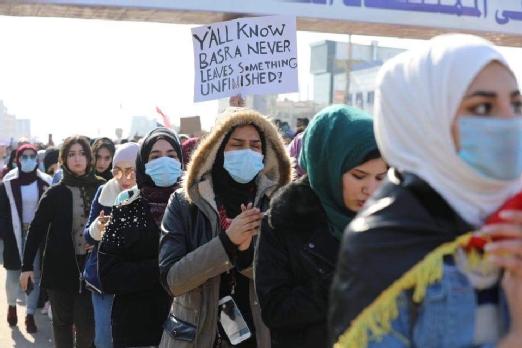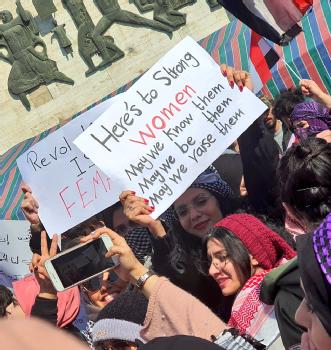Dr Balsam Mustafa, Leverhulme Early Career Fellowship
‘Every day there is Malak’: Cyberfeminisms in Iraq, Saudi Arabia and Yemen
‘Every day there is Malak’, ‘#Nada al-khatani’ and ‘#We are all Marwa al-Bayti’ are three hashtags that have trended on Iraqi, Saudi Arabia and Yemeni Twitter throughout 2020.
Malak, Nada and Marwa are victims of domestic violence, which has increased globally since the start of the pandemic, but is particularly prevalent in the Middle East. Created and shared widely by Iraqi, Saudi and Yemeni feminists and women rights activists, the hashtags are one example of cyberactivism practised by these activists to expose violence against women, mobilise for social and legal change, negotiate feminism and call for social justice. Despite their shared struggles, their country-specific circumstances are diverse, impacting upon their respective cyberfeminist practices.
Dr Balsam Mustafa, who is currently based at the University of Birmingham, will join the University of Warwick in October 2021 to undertake a Leverhulme Early Career Fellowship, which will constitute the first interdisciplinary study assessing cyberfeminist networks in Iraq, Yemen and Saudi Arabia. Dr Mustafa, who will join Politics & International Studies at Warwick, will explore how prevalent conservatism makes online activism more challenging for feminists and women rights' activists, who continue to face socio-political challenges online and offline in these three countries.

A feminist march in Iraq, 2020. Dr Balsam Mustafa will explore how conservatism makes online activism more challenging for feminists and women rights' activists.

Women protesting in Iraq. The project will explore the impact of gender, religion, ethnicity, class and country-specific context on women's ability to mobilise for social change.
Online activism cannot be detached from the material and corporeal experiences of women rights activists. By conceptualising cyberfeminists as embodied activists who negotiate different challenges in the real world and cyberspace, Dr Mustafa will explore the impact of gender, religion, ethnicity and class, in addition to country-specific context, on women's ability to mobilise for social change.
Her project will situate these place-specific movements within the context of larger, transnational feminist networks by identifying similar themes, campaigns and tactics in cyberspace.
By doing so, it will provide novel insights into local and regional battles for women's rights.
